Why Organic Lawn Care is Essential (w/ 5+ Lawn Care Tips)
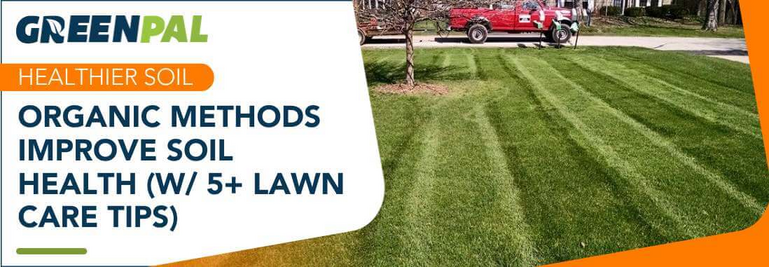
Here’s the deal, when you treat your lawn with organic methods and do it the right way...
You create a system that can care for itself, and will need very little input as far as fertilizers and pesticides.
If you are serious about learning more about the importance of organic lawn care. Then keep reading.
Here is what you need to know.
The Risks of Chemical Treatments
It’s no secret, the synthetic chemicals that are used in lawn care can be highly toxic. Which is why you should only have them applied by a professional.
Not only is the production of synthetic chemicals like pesticides and herbicides harmful to the environment. They can be harmful to the end-user as well.
In fact, Roundup was once thought to be ‘safe and effective', but a slew of lawsuits said otherwise. As a result, Roundup is going to be pulled from store shelves.
The herbicide has been linked to several diseases, most notably, non-Hodgkin's lymphoma. And unfortunately, it took over 50 years for the link to be made clear enough for consumers to take action. So there is no telling what other chemicals may still be in common use that may have similar negative health impacts.
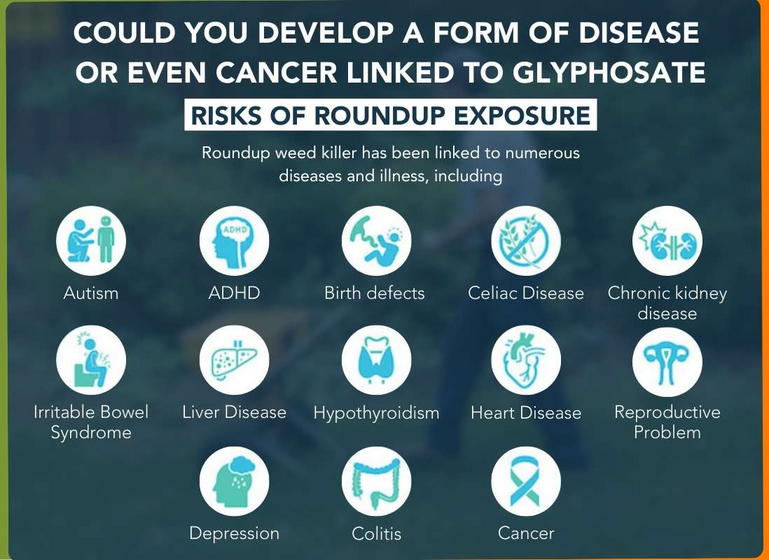
Even Pets and Animals are At Risk
In animals, synthetic chemicals can trigger anything from seizures to fatality. Dogs have been known to develop lymphoma if their owners use herbicides for four or more years. The same illness which has been linked to human use.
Organic lawn care may require more maintenance but fortunately, it's quite easy.
How is organic lawn care safer for families and pets?
Organic lawn care avoids harmful chemicals that can cause health issues in pets and children, such as skin irritations and more serious long-term conditions. It ensures a non-toxic environment where families and pets can safely enjoy outdoor spaces.
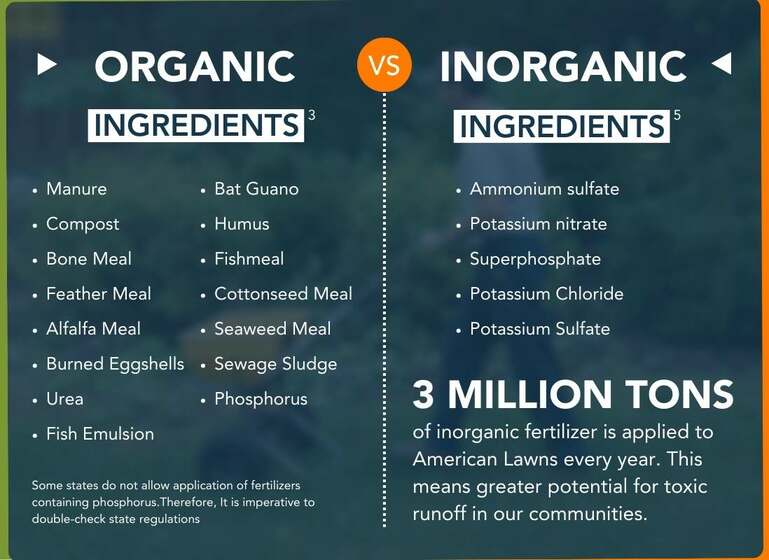
Organic Lawn Care is Good For You and the Environment
One of the biggest arguments people use for organic lawn care is that not using organic practices is bad for the environment. But today we will focus on why organic lawn care is actually better.
Supports Natural Cycles
Look, nature takes care of itself. No one is going into the woods and applying fertilizer to the oak trees, or the pines in your local woods. That is because there are natural systems already occurring.
Organic lawn care works with these natural cycles to lower the impact your lawn has on the environment. In fact, when don't the right way, your lawn can actually be helpful to the environment.
The World Under Your Soil
One of the systems that is impacted by organic lawn care is the microbiome beneath the soil. While synthetic chemicals destroy the microbiome beneath your lawn, organic lawn care feeds it.
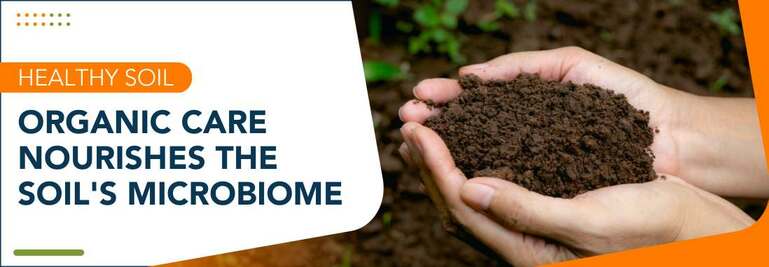
How do chemical fertilizers affect soil health?
Chemical fertilizers can deplete soil nutrients, disrupt the natural microbial balance, and lead to reduced soil fertility over time.
Why do you want to have a healthy microbiome?
It’s simple, there are countless beneficial fungi, and bacteria that naturally fight off plant diseases. Which can prevent harmful diseases from getting into your lawn. This is crazy but, these naturally occurring microbes can actually greatly impact the amount of bio-available nutrients.
You see, with synthetic fertilizers, much of what you apply simply washes away. But when you have a healthy biome, fed with humus and organic fertilizers. You can apply less fertilizer and have a bigger impact on the health of your lawn. This is because beneficial microbes chelate (make them available to plants) nutrients, and some even create compounds that deliver the nutrients to the plant directly. Unfortunatly, synthetic fertilizers can kill these helpful microbes.
Less fertilizer means less money for you too!
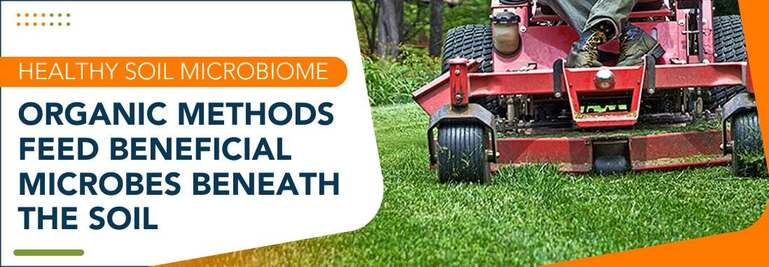
One Plant's Trash, Is Another Plant's Treasure
Look, most people simply toss their clippings on the curb, or bag it up and throw it away. But there are a lot of nutrients in your grass blades. Why not leave it on the lawn!
Mulching blades can be a great ally for you if you are looking to practice organic lawn care. Here’s the deal, mulching blades break down grass into fine matter. Where it quickly breaks down and recycles into the lawn.
Alternatively, if you do bag your clippings, you can always compost your clippings. And apply them back onto your lawn as a top-dressing.
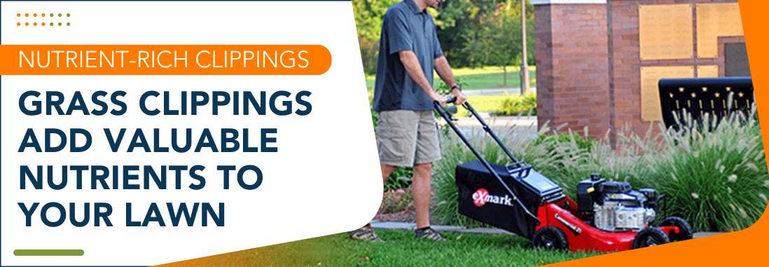
Some Quick Organic Lawn Care Tips:
Leave your grass taller (around 3 inches) this will cut down on the amount of water you need to apply to your lawn.
Use cornmeal as a pre-emergent to cut down on weeds like crabgrass,
Aerate and overseed annually, it’s organic, and makes a huge difference!
Use a mixture of vinegar, dish soap and, Epsom salt as a natural weed killer.
Push mow your lawn if possible, it will help keep you in shape! ;D
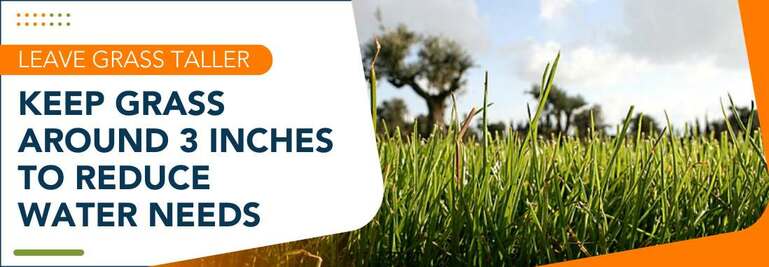
What are the main benefits of using organic lawn care methods?
Benefits of Organic Lawn Care:
Safety: Creates a healthier environment for families, pets, and wildlife |
Soil Health: Improves soil structure and promotes beneficial microorganisms |
Water Conservation: Reduces water usage and chemical runoff |
Environmental Impact: Decreases pollution and promotes sustainability |
Plant Health: Leads to stronger, more drought-resistant law |
Cost-Effective: Lowers long-term maintenance expenses |
Risk Reduction: Eliminates chemical burn and over-fertilization concerns |
Biodiversity: Supports beneficial insects and local ecosystems |
FAQ: Why Organic Lawn Care is Essential
What harmful chemicals are most commonly used in lawn care?
Common harmful chemicals include glyphosate, dicamba, and neonicotinoids, which have been linked to various health and environmental issues.
Is glyphosate dangerous, and how does it affect human health?
Yes, glyphosate is considered dangerous. It has been classified as a probable human carcinogen and is also linked to other health issues like hormonal disruptions.
What are the benefits of aeration and seeding in organic lawn care?
Aeration improves soil drainage and oxygen flow to roots, enhancing grass growth. Seeding fills in thin areas, helping to establish a dense, lush lawn. Together, they reduce weed growth and enhance the lawn's resilience to stress.
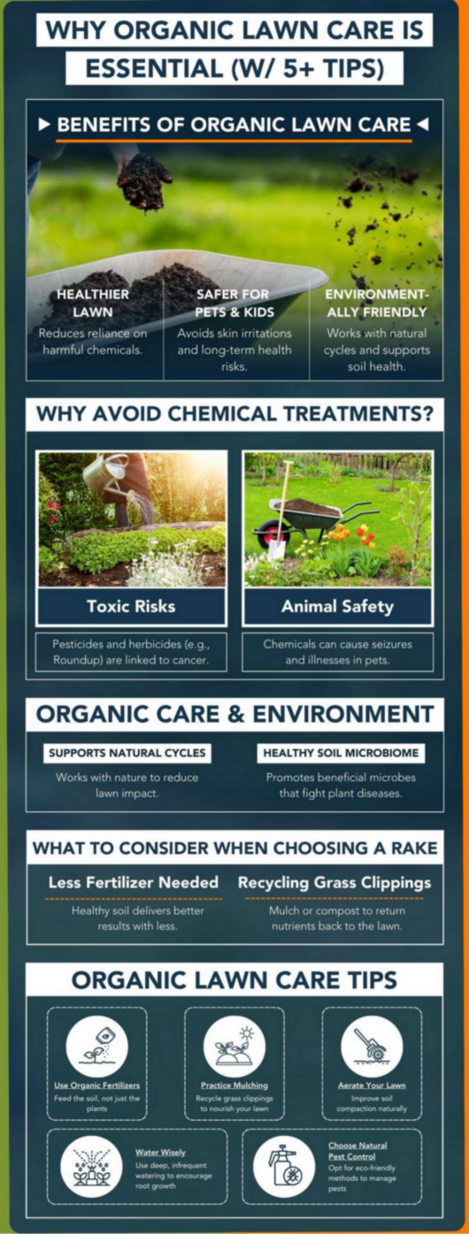
The Bottom Line on Why Organic Lawn Care Is Essential
Organic lawn care works with naturally occurring systems to create a truly healthy, resilient lawn. All without the negative impacts to the environment, your family, and pets.
While it may not always be practical to practice 100% natural lawn care in all situations. The more we work to practice organic lawn care, the better we will leave the world for future generations.
Looking to learn more about lawn care and landscaping? Check out our lawn care blog.





 Share
Share











